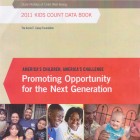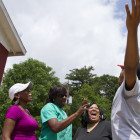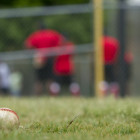
KIDS COUNT: Significant Decline in Children’s Economic Well Being Over Past Decade
|
There has been a significant decline in economic well being for low-income children and families in the last decade, according to the Annie E. Casey Foundation’s annual KIDS COUNT Data Book.
Among the findings, the official child poverty rate, a conservative measure of economic hardship according to the report, increased 18 percent between 2000 and 2009. The increase represents 2.4 million more children now living below the federal poverty line, returning to roughly the same levels as the early 1990’s.
“In 2009, 42 percent of our nation’s children, or 31 million, lived in families with incomes below twice the federal poverty line or $43,512/year for a family of four, a minimum needed for most families to make ends meet,” Laura Speer, associate director for Policy Reform and Data at the Casey Foundation, said in a press release. “The recent recession has wiped out many of the economic gains for children that occurred in the late 1990’s.”





